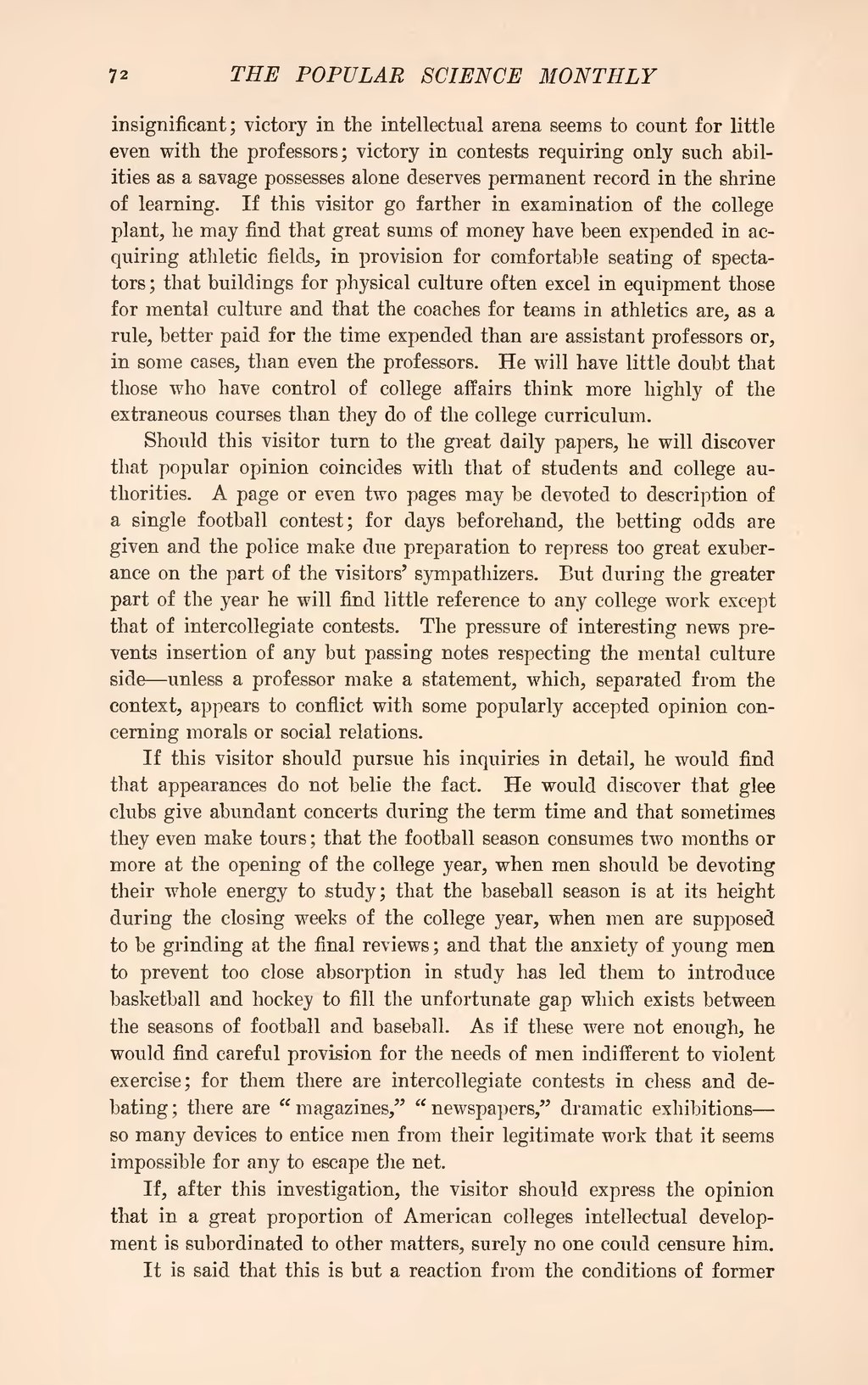insignificant; victory in the intellectual arena seems to count for little even with the professors; victory in contests requiring only such abilities as a savage possesses alone deserves permanent record in the shrine of learning. If this visitor go farther in examination of the college plant, he may find that great sums of money have been expended in acquiring athletic fields, in provision for comfortable seating of spectators; that buildings for physical culture often excel in equipment those for mental culture and that the coaches for teams in athletics are, as a rule, better paid for the time expended than are assistant professors or, in some cases, than even the professors. He will have little doubt that those who have control of college affairs think more highly of the extraneous courses than they do of the college curriculum.
Should this visitor turn to the great daily papers, he will discover that popular opinion coincides with that of students and college authorities. A page or even two pages may be devoted to description of a single football contest; for days beforehand, the betting odds are given and the police make due preparation to repress too great exuberance on the part of the visitors' sympathizers. But during the greater part of the year he will find little reference to any college work except that of intercollegiate contests. The pressure of interesting news prevents insertion of any but passing notes respecting the mental culture side—unless a professor make a statement, which, separated from the context, appears to conflict with some popularly accepted opinion concerning morals or social relations.
If this visitor should pursue his inquiries in detail, he would find that appearances do not belie the fact. He would discover that glee clubs give abundant concerts during the term time and that sometimes they even make tours; that the football season consumes two months or more at the opening of the college year, when men should be devoting their whole energy to study; that the baseball season is at its height during the closing weeks of the college year, when men are supposed to be grinding at the final reviews; and that the anxiety of young men to prevent too close absorption in study has led them to introduce basketball and hockey to fill the unfortunate gap which exists between the seasons of football and baseball. As if these were not enough, he would find careful provision for the needs of men indifferent to violent exercise; for them there are intercollegiate contests in chess and debating; there are "magazines," "newspapers," dramatic exhibitions—so many devices to entice men from their legitimate work that it seems impossible for any to escape the net.
If, after this investigation, the visitor should express the opinion that in a great proportion of American colleges intellectual development is subordinated to other matters, surely no one could censure him.
It is said that this is but a reaction from the conditions of former

